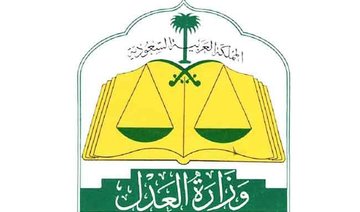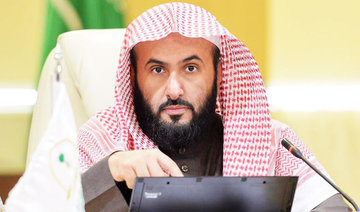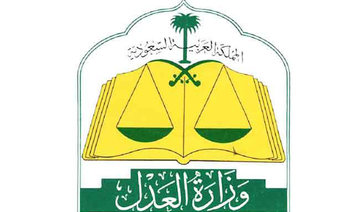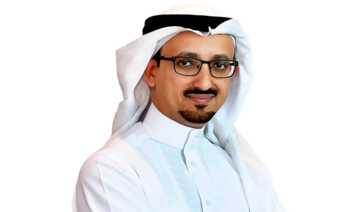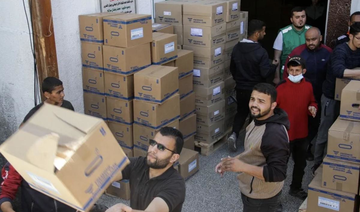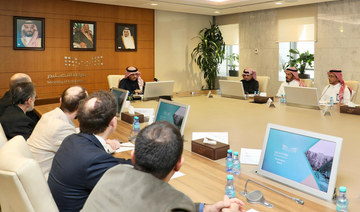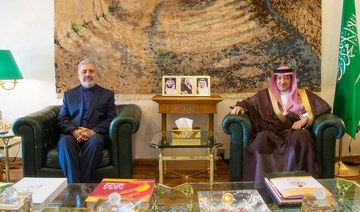RIYADH: The “paperless courts” project has allowed the Ministry of Justice to win a UN-sponsored technical excellence award at the World Summit on the Information Society (WSIS) in Geneva recently, the ministry said.
The ministry reportedly won the award following a global contest — on the best information and communication technologies (ICT) initiatives — where more than 1.1 million votes were cast for the sixth edition of the WSIS prize contest.
Voters selected from a list of 345 ICT success stories were nominated through a comprehensive review by the WSIS Prizes Expert Group from 467 submitted projects.
In January, the Saudi Minister of Justice launched a series of “paperless courts” in a number of parts in the Kingdom aimed to cancel paper-based transactions in all enforcement courts Kingdom-wide.
He said the (paperless) project handles all transactions in an integrated electronic process to save a lot of time, effort and money.
The project provides mechanisms to enhance judge powers through the direct electronic link to a number of government agencies such as the Ministries of Commerce, Interior and Saudi Arabian Monetary Authority (SAMA), a matter that raised the efficiency of courts and restoration of rights to beneficiaries.
Salih Al-Miqrin, assistant ministry undersecretary for Information Technology, said obtaining such a global award affirms the success of the ambitious plans of the Saudi government in developing services in various government agencies in line with the Vision 2030 and the digital transformation in the Kingdom.
He said the electronic applications and services implemented by the Ministry of Justice are aimed to facilitate procedures and services provided to visitors, and raise efficiency as one of the ministry’s objectives in the National Transformation Programs (NTP) 2020.
The UN secretary-general will hand over the WSIS award to the Ministry of Justice in a ceremony to be held in Geneva in the middle of the holy month of Ramadan.
The UN-sponsored WSIS prize is a contest organized by the International Telecommunication Union (ITU) in collaboration with the UN Conference for Trade and Development (UNCTAD), UNESCO and the UN for Development Program (UNDP).
Saudi Justice Ministry wins UN-sponsored technical excellence award
Saudi Justice Ministry wins UN-sponsored technical excellence award
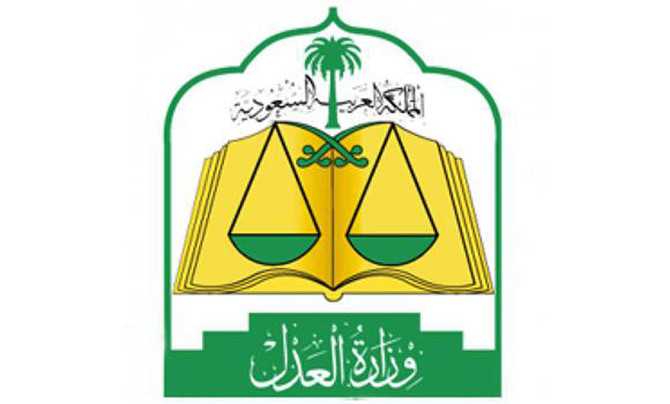
Heba Ismail brings Saudi representation to NFT ecosystem
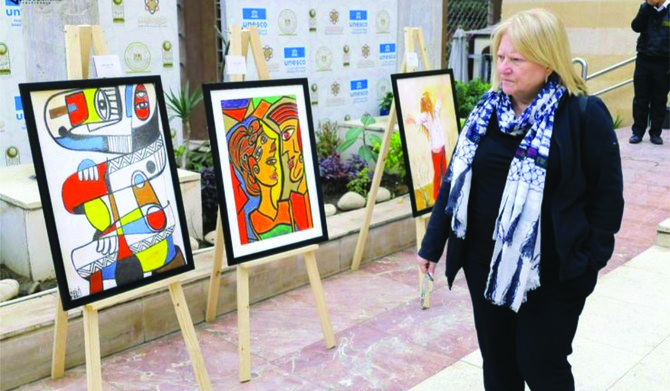
- Heba Ismail is highlighting ways for artists to flourish in the digital world
JEDDAH: Saudi artist Heba Ismail showcased her work at the Outer Edge Innovation Summit in Riyadh this week.
Commenting on her experience at the summit as one of the first Saudi artists to venture into the Web3 art scene, she said: “Having my paintings displayed on the event screens is a tremendous honor, offering global visibility and inspiring more Saudi and Arab artists to explore the diverse options available for sharing their art with the world.

“Through my participation with Nuqtah, the first Saudi NFT platform, I am eager to present my art on a global stage and connect with audiences in innovative ways,” she continued.
Non-fungible tokens — or NFTs — are, in this scenario, digital tokens that can be redeemed for a digital art work. Ismail is exploring their potential in the Saudi art scene.
HIGHLIGHTS
• With a professional background in dentistry, Heba Ismail found parallels between that meticulous work and her own creative process.
• Partnering with ChainVisory, a blockchain consultancy company, Ismail launched the Hebaism brand.
• It combines NFTs and original paintings, providing collectors with both digital and physical assets.
For Ismail, art has always been more than just a hobby — it’s been a lifelong calling. With a professional background in dentistry, Ismail found parallels between that meticulous work and her own creative process.

Inspired by movements including cubism, fauvism, and surrealism, Ismail’s art is a fusion of diverse influences and personal narratives “Each face represents a feeling and a vision documented on a painting. I paint poetry, and often times each piece is accompanied by a poem,” she said. “As a Saudi female, most of my paintings represent myself and my Saudi culture, which I am proud of. The characters are coded feelings, faces that tell a story — either joy, sadness, or acrimony.”

Her introduction to NFTs came in 2021, sparking a fascination with the technology and its potential. Partnering with ChainVisory, a blockchain consultancy company, Ismail launched her Hebaism brand, which combines NFTs and original paintings, providing collectors with both digital and physical assets.
As a female Saudi artist, I want to leave a mark and impact on every art platform, putting Saudi art on the map worldwide.
Heba Ismail, Saudi artist
“I wanted to keep the authentic classical painting process, yet the NFT world gave me a chance to meet and discover different ways to share my art and build a name and a brand,” she said. “It’s been an enlightening journey, uncovering the futuristic art process and connecting with a vibrant community through Web3.”
Ismail hopes to inspire other artists in the region to explore new avenues for artistic expression.
“As a female Saudi artist, I want to leave a mark and impact on every art platform, putting Saudi art on the map worldwide,” she said.
Who’s Who: Ahmed bin Ali Al-Suwailem, CEO of the National Center for Non-Profit Sector
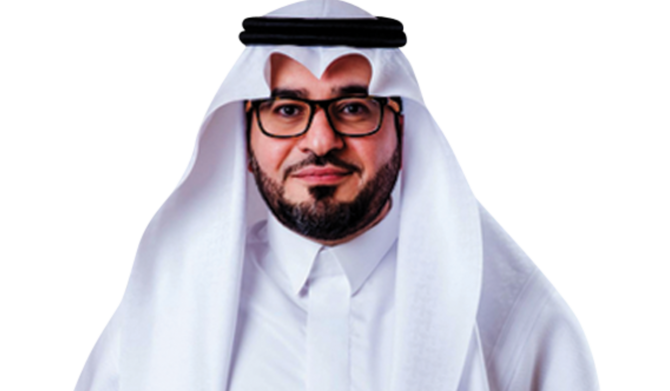
Ahmed Al-Suwailem has been CEO of the National Center for Non-Profit Sector since 2022. He has over 20 years of experience in the public and private sectors, specializing in economics, trade, finance, and banking.
Al-Suwailem is responsible for developing the Kingdom’s non-profit sector, expanding its impact on social and economic development, and integrating government efforts in licensing, financial supervision, and coordination.
Prior to his current position, Al-Suwailem, at various times, served as CEO of the National Anti-Commercial Concealment Program at the Saudi Ministry of Commerce; as adviser to the Saudi Minister of Commerce; and as secretary general of the Riyadh Chamber.
He has also been head of management information systems in financial planning and control at Saudi Investment Bank, and executive vice president of financial control at Gulf International Bank.
Al-Suwailem currently also serves as managing director and board member at the Riyadh International Exhibition Center and is a board member of the General Authority for Awqaf and the Associations Support Fund, a trustee of the Riyadh Economic Forum, and a member of the executive committee for remuneration and compensation at the Riyadh Chamber.
Al-Suwailem holds a master’s degree in finance from George Washington University in the US and a bachelor’s degree in accounting from King Saud University in Saudi Arabia.
He is a certified management accountant and public accountant and holds a certificate in international financial reporting standards and accreditation in exhibition and conference management from the International Association of Exhibitions and Events.
Saudi FM Prince Faisal hosts Arab ministerial meeting on Gaza situation in Riyadh
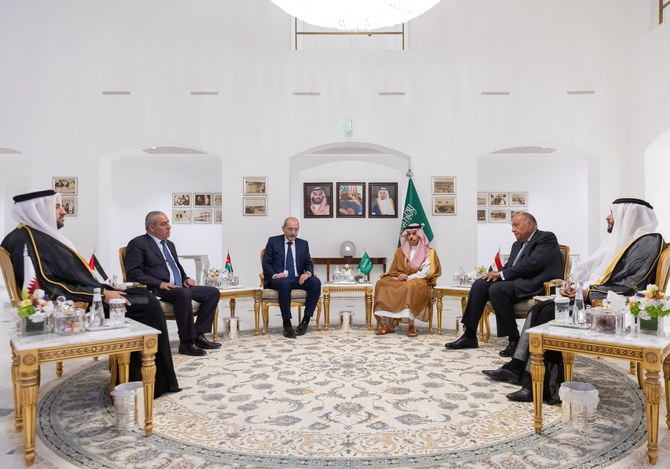
RIYADH: Saudi foreign minister Prince Faisal bin Farhan hosted a ministerial meeting on Saturday in Riyadh with representatives from six other Arab states to discuss the situation in Gaza, Saudi Press Agency reported.
The meeting was attended by Ayman Al-Safadi of Jordan, Egypt’s Sameh Shoukry, Secretary of the Executive Committee of the Palestine Liberation Organization Hussein Al-Sheikh, diplomatic adviser to the UAE president Anwar bin Mohammed Gargash, and Minister of State at the Qatari Ministry of Foreign Affairs, Mohammed bin Abdulaziz Al-Khulaifi.
They discussed the need to end the war on the Gaza Strip, reach an immediate and complete ceasefire, ensure the protection of civilians in accordance with international humanitarian law, and lift all restrictions that impede the entry of humanitarian aid into the enclave.
They also expressed their support for all efforts aimed at international recognition of an independent Palestinian state, something they agreed was vital for Palestinians to be able to take irreversible steps to implement the two-state solution.
The ministers stressed the need for a State of Palestine to be based on the borders of June 4, 1967, with East Jerusalem as its capital, in accordance with relevant international resolutions.
They expressed their categorical rejection of any attempts to displace the Palestinian people from their land, and any military operation in the Palestinian city of Rafah.
The ministers warned of the continuation of illegal Israeli measures in the West Bank and occupied East Jerusalem that undermine the two-state solution, including settlement expansion, land confiscation, military operations against Palestinians, settler attacks, and besieging freedom of worship for Muslims and Christians.
70 Saudi students win medals at tech Olympiad
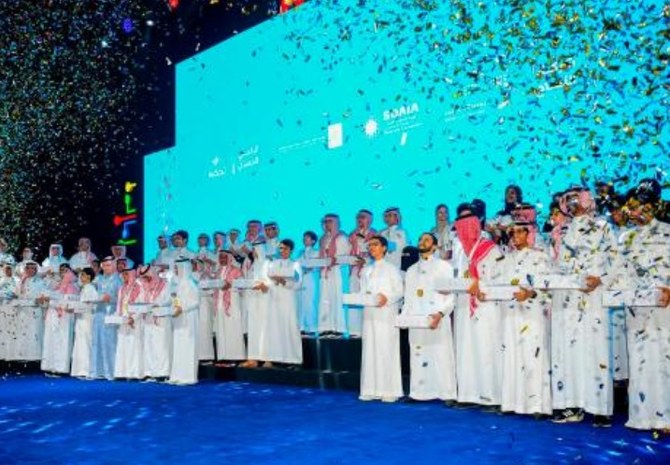
- Young talents from across the Kingdom shine in programming and AI
- The event also “aims to enhance the global competitiveness of this generation to help achieve the objectives of the Human Capacity Development Program, (part of) Saudi Vision 2030”
RIYADH: The National Olympiad for Programming and Artificial Intelligence (ATHKA) concluded on Saturday.
The event, organized over several months by the Saudi Data and Artificial Intelligence Authority, in partnership with the King Abdulaziz and His Companions Foundation for Giftedness and Creativity (Mawhiba) and the Ministry of Education was intended to “nurture a promising generation of Saudi school students from intermediate and secondary levels, totaling about 3 million across various regions and governorates of the Kingdom, in the fields of programming and artificial intelligence,” according to the Saudi Press Agency.
The SPA added that the event also “aims to enhance the global competitiveness of this generation to help achieve the objectives of the Human Capacity Development Program, (part of) Saudi Vision 2030.”
Saudi Minister of Education Yousef Al-Benyan; chairman of the board of directors of the Education and Training Evaluation Commission, Dr. Khalid bin Abdullah Al-Sabti; president of SDAIA, Abdullah Al-Ghamdi; and the secretary-general of Mawhiba, Amal Al-Hazzaa, along with several officials from the fields of education and academia, a select group of AI specialists, and parents of the students, attended the event at Princess Nourah bint Abdulrahman University.
Yaser Al-Onaizan, CEO of the National Center for Artificial Intelligence at SDAIA, delivered a presentation on AI and its role in developing human capabilities at the event. He noted that the human element is key to AI, and said that today’s students will become experts in new technologies faster than ever due to the ample learning and training opportunities in AI.
The final round of the competition was held from April 23 to 27 in Riyadh. Five students from the secondary level and five students from the intermediate level were awarded gold medals in the Olympiad. Eleven students from the secondary level and 10 from the intermediate level received silver medals, while 19 secondary students and 20 intermediate students earned bronze.
A total of 298 students competed in the final stage after qualifying from a pool of 260,000 Saudi students from across the Kingdom.
The Olympiad was designed to find “outstanding school students skilled in computational thinking to analyze and solve algorithmic programming challenges,” according to the SPA. “This step would help them enter the field of AI and encourage them to develop computational thinking skills, design AI-based algorithms, and recognize these skills as essential for learning in the 21st century.”
Its goals also included, the SPA reported, “harnessing young students’ intellectual abilities to solve complex problems, fostering a knowledge-based economy, promoting competitive programming, and cultivating a generation capable of excelling in international Olympiads in informatics and AI. Additionally, it aimed to build and strengthen the next generation’s skills in advanced technology, including AI-related fields.”
Saudi deputy FM receives Palestinian president
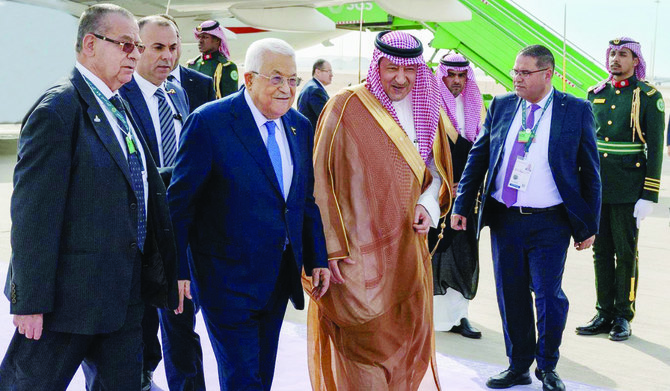
- Abbas will participate in the special meeting of the World Economic Forum to promote global collaboration, growth, and energy for development
RIYADH: Saudi Deputy Minister of Foreign Affairs Waleed Elkhereiji received Palestinian President Mahmoud Abbas and his accompanying delegation at King Khalid International Airport, Riyadh, on Saturday.
Abbas will participate in the special meeting of the World Economic Forum to promote global collaboration, growth, and energy for development, the Saudi Press Agency reported.
Nayef bin Bandar Al-Sudairi, the Saudi ambassador to Jordan and non-resident ambassador to Palestine, and Ambassador of Palestine to the Kingdom Bassem Al-Agha were also present.


